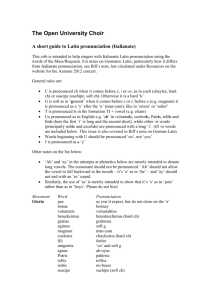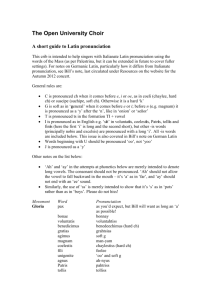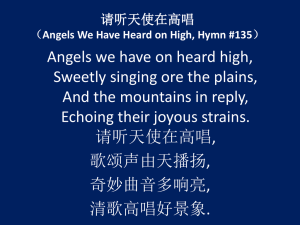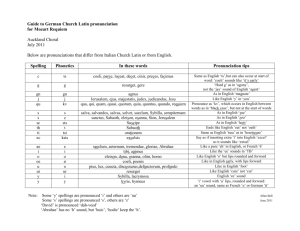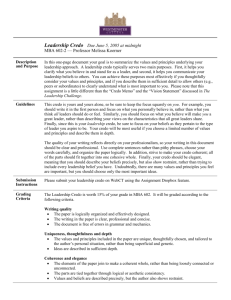German Latin Mass Pronunciation Guide for Choirs
advertisement
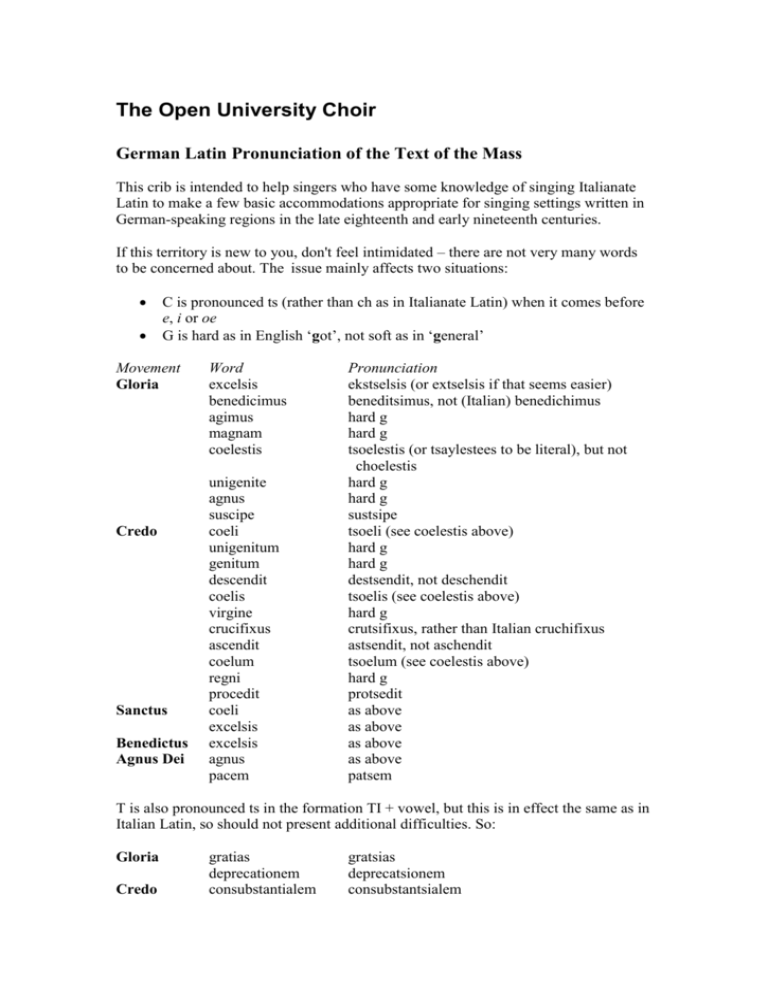
The Open University Choir German Latin Pronunciation of the Text of the Mass This crib is intended to help singers who have some knowledge of singing Italianate Latin to make a few basic accommodations appropriate for singing settings written in German-speaking regions in the late eighteenth and early nineteenth centuries. If this territory is new to you, don't feel intimidated – there are not very many words to be concerned about. The issue mainly affects two situations: C is pronounced ts (rather than ch as in Italianate Latin) when it comes before e, i or oe G is hard as in English ‘got’, not soft as in ‘general’ Movement Gloria Credo Sanctus Benedictus Agnus Dei Word excelsis benedicimus agimus magnam coelestis unigenite agnus suscipe coeli unigenitum genitum descendit coelis virgine crucifixus ascendit coelum regni procedit coeli excelsis excelsis agnus pacem Pronunciation ekstselsis (or extselsis if that seems easier) beneditsimus, not (Italian) benedichimus hard g hard g tsoelestis (or tsaylestees to be literal), but not choelestis hard g hard g sustsipe tsoeli (see coelestis above) hard g hard g destsendit, not deschendit tsoelis (see coelestis above) hard g crutsifixus, rather than Italian cruchifixus astsendit, not aschendit tsoelum (see coelestis above) hard g protsedit as above as above as above as above patsem T is also pronounced ts in the formation TI + vowel, but this is in effect the same as in Italian Latin, so should not present additional difficulties. So: Gloria Credo gratias deprecationem consubstantialem gratsias deprecatsionem consubstantsialem etiam Pontio tertia resurrectionem etsiam Pontsio tertsia resurrectsionem In German the emphasis is on the first syllable of ‘A-men’ and not, as in English usage, on the ‘-men’; so it is better to think of it as ‘A-min’. In the music of Germanspeaking composers you will invariably find instances where ‘A-’ is given a longer note than ‘-men’, or more elaborate treatment, like runs. More tellingly, you will find places where the stress is on ‘A-’ and ‘-men’ falls on a relatively weak beat. Of course, it is inevitable that, since ‘Amen’ is usually the last word, ‘-men’ will eventually fall on a downbeat; but even then it should not be overstressed. Finally, a point which is not to do with the German/Italian issue. It is important to distinguish between the two pronunciations of the ending ‘-is’: the i is pronounced as in English e.g. ‘sit’ in Patris (3 times in the ‘Gloria’) and tollis (once in the ‘Gloria’ and once in the ‘Agnus Dei’) but it is pronounced ‘ee’ as in seen in excelsis (once each in ‘Gloria’, ‘Sanctus’ and ‘Benedictus’) and nobis (‘Gloria’ and ‘Credo’ once each; ‘Agnus’ twice) In finis (once in ‘Credo’) the first i is long, the second short, so feenis Bill Strang GermanLatin_Mass_revSept06.doc
